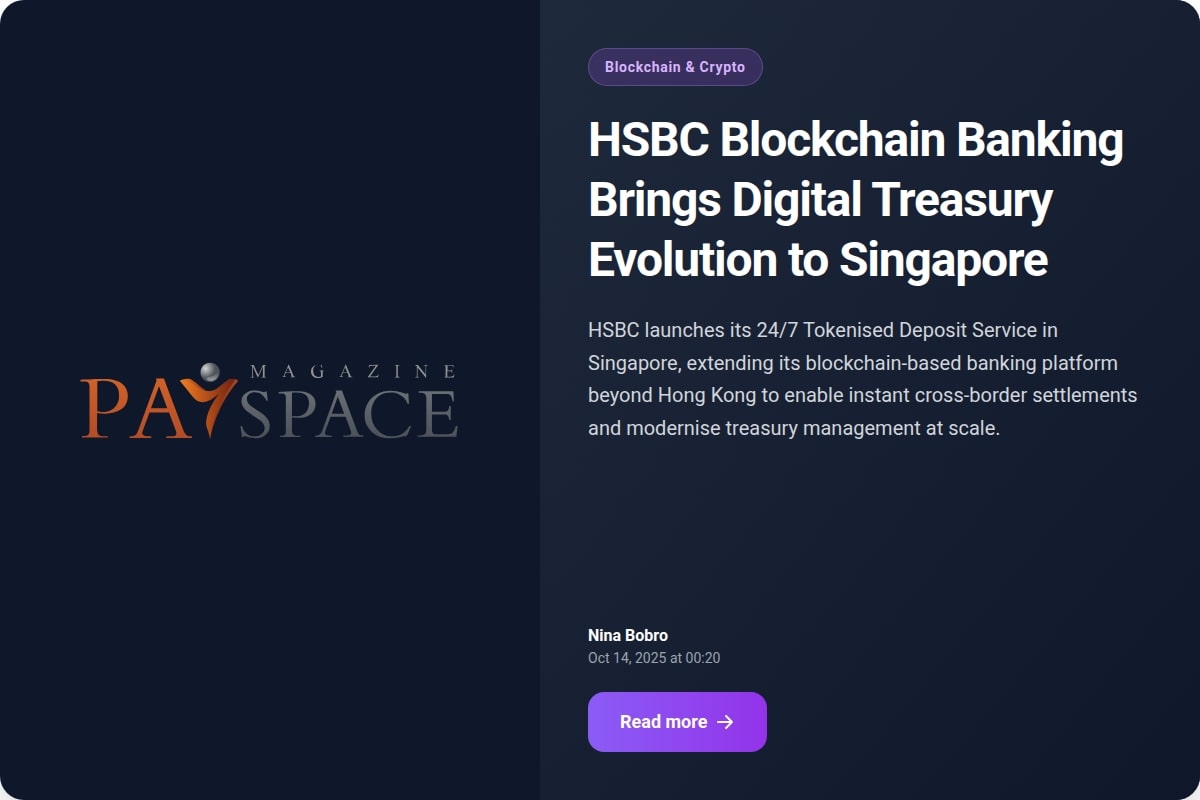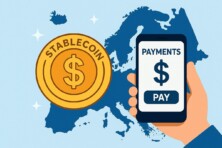HSBC launches its 24/7 Tokenised Deposit Service in Singapore, extending its blockchain-based banking platform beyond Hong Kong to enable instant cross-border settlements and modernise treasury management at scale.

HSBC has recently launched its Tokenised Deposit Service (TDS) in Singapore, first scaling its blockchain-based payment platform beyond Hong Kong.
TDS is a blockchain-based capability (using distributed ledger technology, or DLT) for corporate clients that turns traditional fiat deposits into digital tokens. The service enables real-time, 24/7 cross-border settlements, allowing companies to move funds instantly and manage liquidity more efficiently. The system also supports programmable payments and atomic settlements, enabling more automated and efficient treasury workflows.
Among early service adopters, there’s Ant International, which successfully completed real-time payments in SGD and USD between its corporate wallets held with HSBC Singapore. Earlier, in September, HSBC facilitated its first USD cross-border digital token transaction for Ant International entities in Hong Kong and Singapore — marking a step forward in the evolution of digital treasury operations.

With global markets facing increased currency volatility and interest rate uncertainty, treasurers are turning to faster, more transparent digital tools. According to HSBC’s Redefining Treasury Asia Pacific 2025 report, Singapore leads the region in adopting new financial technologies. TDS supports this shift by removing transaction cut-off times and integrating directly into existing treasury systems, providing speed, transparency, and greater control.
According to Lewis Sun, Global Head of Domestic and Emerging Payments at HSBC, the service reflects HSBC’s goal of making real-time treasury operations a reality, even outside traditional working hours. He added that interoperability among CBDCs, tokenised deposits, and stablecoins will play a key role in the future of digital money.
Winnie Yap, Head of Global Payments Solutions at HSBC Singapore, noted that clients in Singapore are rapidly adopting digital treasury models. She said tokenised deposits give companies more control and certainty over cross-border cash flows while improving operational efficiency.
With TDS service, corporate clients hold ordinary deposit accounts with HSBC. When needed, HSBC tokenizes part of the fiat deposit (meaning the equivalent funds in traditional currency are “locked” or reserved) and issues a corresponding digital token into a wallet associated with the client. Then, while making money transfers, the client moves tokens from their wallet to another wallet (can be the same corporation’s entity in another market, or another HSBC network participant) via the DLT rails. If required, the recipient seamlessly redeems the tokens back into fiat via HSBC’s system.
Following a 2023 pilot in Hong Kong, HSBC has now enabled TDS for SGD and USD transactions in Singapore and for GBP and EUR in the UK and Luxembourg. The bank plans to expand the service globally, helping clients gain real-time visibility, faster payments, and improved risk management across markets.
Besides HSBC, several major banks and market players are building or piloting similar tokenisation and DLT cash services in Singapore and globally (Citi, JPMorgan, DBS, others), while MAS and local incumbents actively support tokenisation experiments. Large banks and regulators testing and even practically implementing blockchain tokenization in banking shows the model is moving from lab to live, increasing adoption momentum and ecosystem support.









